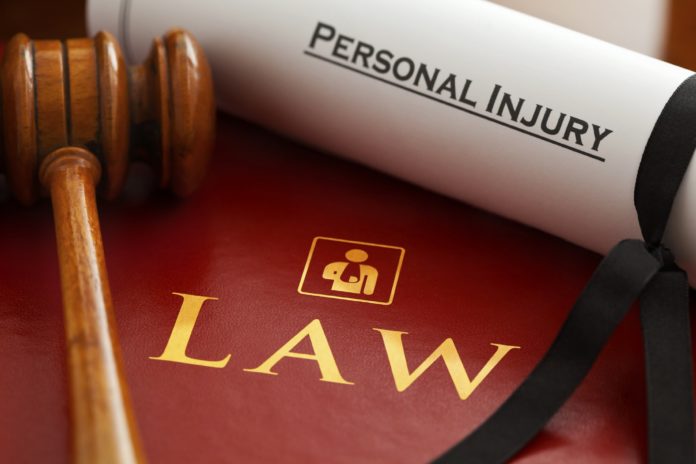
You become entitled to a personal injury claim if you get injured. But before you file for it, you have to understand what personal injury means and what you need to do to receive the damage amount.
In simple terms, personal injury refers to wounds and injuries sustained in a car accident or due to slip and fall at work, medical malpractice or negligence, and so on. If you don’t have any prior experience of such events, you may not know what you can expect in those situations. Due to injury, you may struggle to pay medical bills, lose your earnings, suffer from emotional trauma, and have difficulty leading a healthy life like before. With the help of lawsuits, you can protect your interest and finances for the future by entering a settlement with the offender or through court trials. Usually, most cases get resolved without requiring the involvement of a judge and jury.

According to martingschulz.com if an insurance company denies compensation or the defendant doesn’t agree, then your lawyer may have to represent your case in the court. When you go to Martin G. Schulz & Associates’ Edmonton law office for help, they can suggest the best possible course of action. Hiring a law firm can prove to be advantageous for you as they can recover at least three times higher compensation compared to when you do it yourself. Since these people know the value of claims and negotiation tactics well, you can depend on them.
Points to consider when going for filing a personal injury claim
1. Consultation with attorney
The insurance company may advise you against hiring a lawyer. But don’t follow their suggestion as they want you to close the deal for a less amount than the actual worth of the case. So, don’t sign any papers before you talk to a personal injury lawyer. Otherwise, you may not get the amount you deserve.
2. The fault of the other party
When you claim damage owing to personal injury, you need to establish that you sustained injuries because of the negligence or recklessness of the other party. If they are at fault, they will have to compensate for the damages, which include medical bills, lost income, pain and suffering, and others.

3. Assessment of the claimed amount
The seriousness of the injury and related circumstances, among others, can influence the value of the claim. Hence, it is necessary to study facts and then arrive at an estimated figure. When you hire a trusted attorney, you don’t need to worry about this. They can assess the value of your claim based on facts and help you obtain a fair or most favourable amount.
Since there tends to be a timeframe within which you need to file your case, you cannot afford to delay from your end. So, if you want to recover the losses caused by the negligence of the other party, you should talk to the lawyer as soon as possible. Once you assign them the project, you can focus on your recovery and other parts.
4. The Discovery Phase
The discovery phase begins with each party investigating what the other party’s defences and claims are. They would be sending document requests and interrogations to each other. Moreover, they would be taking depositions of all related witnesses and parties usually, starting with the defendant and plaintiff. This process could be lasting for six months to almost a year as per the case’s complexity and the court’s deadlines.

5. Negotiation & Mediation
Towards the end of the discovery period, the attorneys would start initiating settlement talks. Sometimes, the attorneys could reach a settlement by discussing among themselves. However, in some other cases, they would be shifting to the mediation process that involves both the attorneys and both the clients and they would be assisted by a neutral third-party mediator. The mediator’s responsibility is to make efforts at resolving the case.
6. Trial
Mediation could be quite effective and the case could get resolved. However, if mediation fails, the case would be scheduled for trial. This sort of trial could take a day, maybe a week, or longer. The trial could get extended because, in several states, trials take place for just half a day. This results in doubling the trial length.
Often trials for lawsuits do not take place on the scheduled date. Trials are often postponed according to the schedule of the judge. In the event, your trial is pushed to a later date, you should not automatically assume that something has gone wrong or something unfavourable is occurring. Remember trials are postponed or delayed at the drop of a hat for most insignificant reasons. Some individuals are not too keen on employing the services of a personal injury attorney. They do not like the idea of paying a percentage of the lawyer’s fee for handling their lawsuit. But such individuals would be at the receiving end simply because they are not experienced or qualified to handle personal injury lawsuits against the trained and experienced insurance company lawyer. Most insurance companies would try to pay you the least, possible amount. When they find a layperson dealing with their own case without any professional assistance, they are too happy to take advantage of you and would be paying you far smaller amount than they would in the case, a qualified attorney was representing the case. Hence, you must not commit the mistake of assuming that you are capable of handling the case without any professional assistance of an experienced personal injury attorney.

7. Contingency Fee
Most personal injury attorneys would be handling cases on chiefly contingency fee basis implying you could pay your lawyer nothing upfront for his services. Only if and when they are successful in recovering money, you could pay an experienced lawyer a percentage of the fee they are supposed to collect.
You must consider filing your personal injury lawsuit claim well before the statute of limitations is supposed to expire. You need to keep in mind that you need to abide by the time limits and complete filing your case within the set deadlines according to the state of your residence. This sort of a time limit that has been imposed on a lawyer or attorney must expire within one year to a maximum of six years. The relevant statute of limitations could be varying for minors.













